Every day, social workers and human service professionals juggle a large volume of responsibilities- data collection, case updates, outcome tracking, compliance reporting, and care planning.
Without the right case management software, these administrative burdens pile up, affecting both client care and service delivery.
Social care management software provides one system for care providers, nonprofit organizations, and government agencies to manage social work cases, track progress, and deliver high quality care efficiently.
In this guide, we’ll explore what it is, why it matters , essential management tools, and how the right platform can help social workers provide exceptional care while meeting compliance requirements.
What Is Social Care Management Software?
Social care management software, sometimes referred to as case management software, case management system, or human services software, is an intuitive tool that consolidates client management, documentation, and service delivery into a secure, centralized platform.
It enables case managers to:
- Store and organize client information and case notes
- Coordinate services with other agencies and partner programs
- Track outcomes and monitor complex caseloads
- Maintain HIPAA-compliant safeguards for sensitive information
- Use customizable templates for care plans, assessments, and progress reports
- Facilitate client engagement with secure portals and communication tools
For social work practice, it’s more than just software, it’s a way to meet unique needs, save time, and ensure compliance while improving client care.
Why Social Care Management Software Matters in 2025
1. Rising Caseloads and Evolving Needs
Social workers are managing complex caseloads with diverse and evolving needs. Whether in child welfare, housing, or behavioral health, quick access to vital information can mean the difference between timely intervention and a missed opportunity.
2. Compliance and Data Security
From HIPAA compliance to local confidentiality laws, protecting sensitive information is non-negotiable. Data security features like encryption, audit trails, and digital signature capture help meet legal standards while keeping client trust intact.
3. Outcome Tracking and Reporting Requirements
Funders and oversight bodies demand accurate outcome tracking and comprehensive reporting. Robust management software allows agencies to track progress, generate compliance-ready reports, and make informed decisions.
4. Collaboration Across Services
Clients often require personalized support from multiple providers- housing programs, mental health counselors, and medication management specialists. A unified case management system enhances collaboration by giving all stakeholders access to one source of truth.
Key Features of Social Care Management Software
Drawing from the top software providers, here are the must-have features in management tools for social work case management:
1. Client & Case Management
- Centralized client data with demographic, historical, and case notes records
- Role-based permissions for case managers
- Searchable profiles for quick access to vital information
2. Customizable Templates for Intake and Care Planning
- Customizable templates for intake, care planning, and service updates
- Standardized forms for social services and social work tools
- Digital signature capture for consent and agreements
3. Outcome Tracking & Reporting
- Real-time dashboards for tracking outcomes and outcome tracking metrics
- Automated reporting for funders, compliance, and grants
- Insights into program performance
4. Integration Capabilities
- Integration capabilities with EHR, payment processing, and scheduling tools
- API access for coordination with other agencies
- Data sync for medication management records
5. Secure Client Engagement
- HIPAA-compliant communication portals
- Multi-language interfaces for inclusive service delivery
- Tools to promote client engagement and follow-up
Benefits for Social Workers and Care Providers
For Social Workers
- Access vital information in the field or office
- Simplify documentation and task tracking
- Reduce administrative burdens to focus on best care
For Care Providers and Teams
- Coordinate with other agencies seamlessly
- Manage services in one system
- Enhance collaboration and efficiency
For Clients
- Faster service delivery
- More personalized support
- Consistent, high quality care across the care journey
Real-World Use Cases
1. Child Welfare Programs
Agencies can track placements, visitation schedules, and school attendance while ensuring compliance with legal requirements.
2. Behavioral Health Services
Integrate medication management, therapy schedules, and client engagement activities to support recovery.
3. Homelessness Prevention
Manage housing applications, coordinate with landlords, and monitor outcomes for funding reports.
4. Nonprofit Organizations
Centralize client data, manage volunteers, and improve service delivery without adding extra administrative staff.
These examples show how the right platform adapts to different settings while improving efficiency and compliance
Top 7 Social Care Management Software Platforms in 2025
These platforms represent the leading options for social workers, nonprofits, and agencies , each designed to reduce admin time while keeping compliance and client care front and center.
1. Apricot
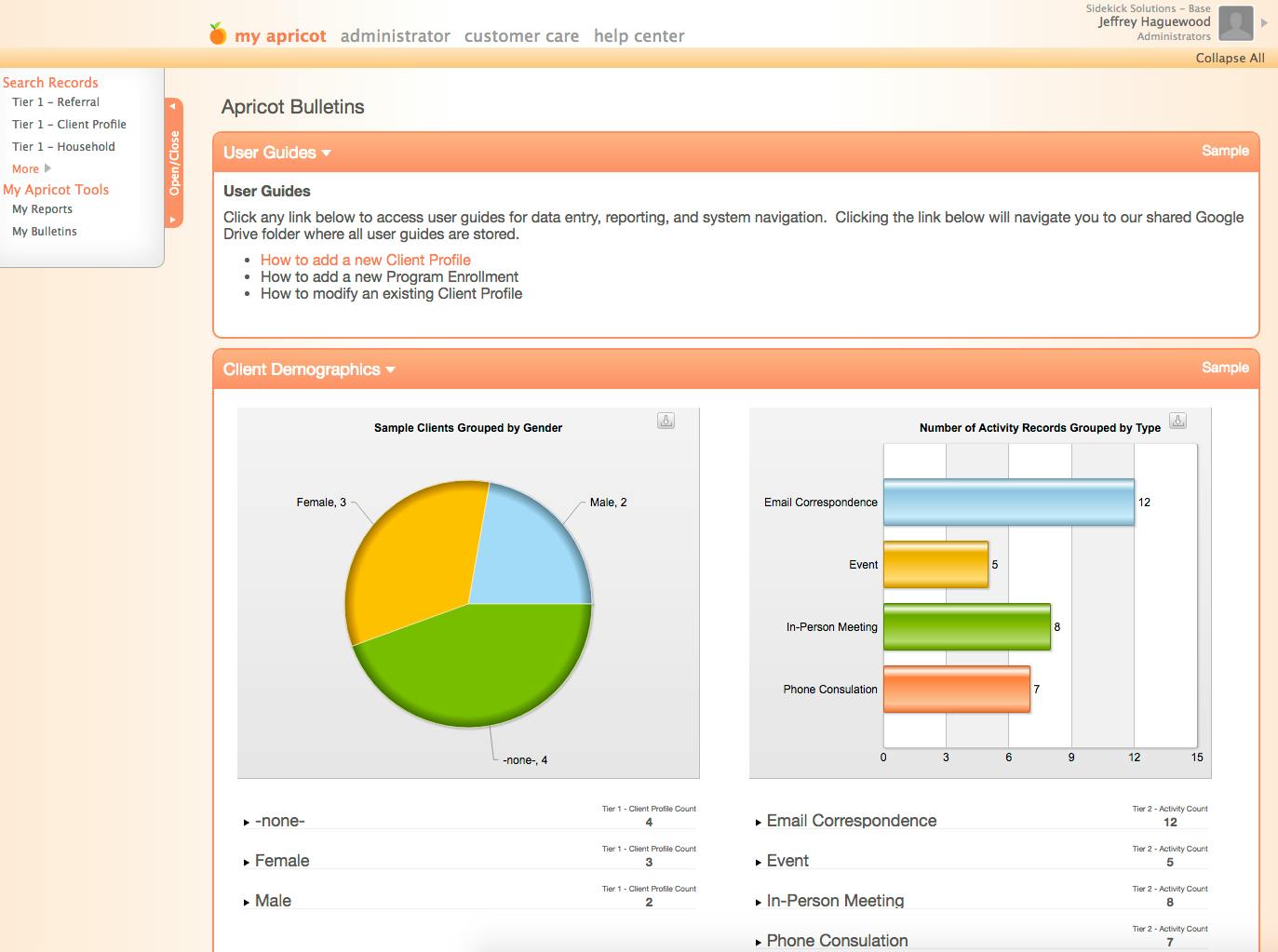
Apricot is widely used by nonprofits for managing social services. It simplifies case tracking, reporting, and client communication, making it ideal for organizations that need structured workflows with strong compliance features.
Key Features:
- Impact measurement built-in: Preconfigured dashboards for grants, funder reports, and program outcomes.
- Tiered permissions: Volunteer, staff, and leadership access levels so sensitive client data is only seen where needed.
- Configurable intake flows: Drag-and-drop form builder lets agencies design their own program intakes without coding.
- Longitudinal client tracking: You can view a client’s entire service journey across multiple programs in one record.
Pricing: $45/user/month
Best Suited For: Nonprofit organizations managing social impact programs
2. FAMCare
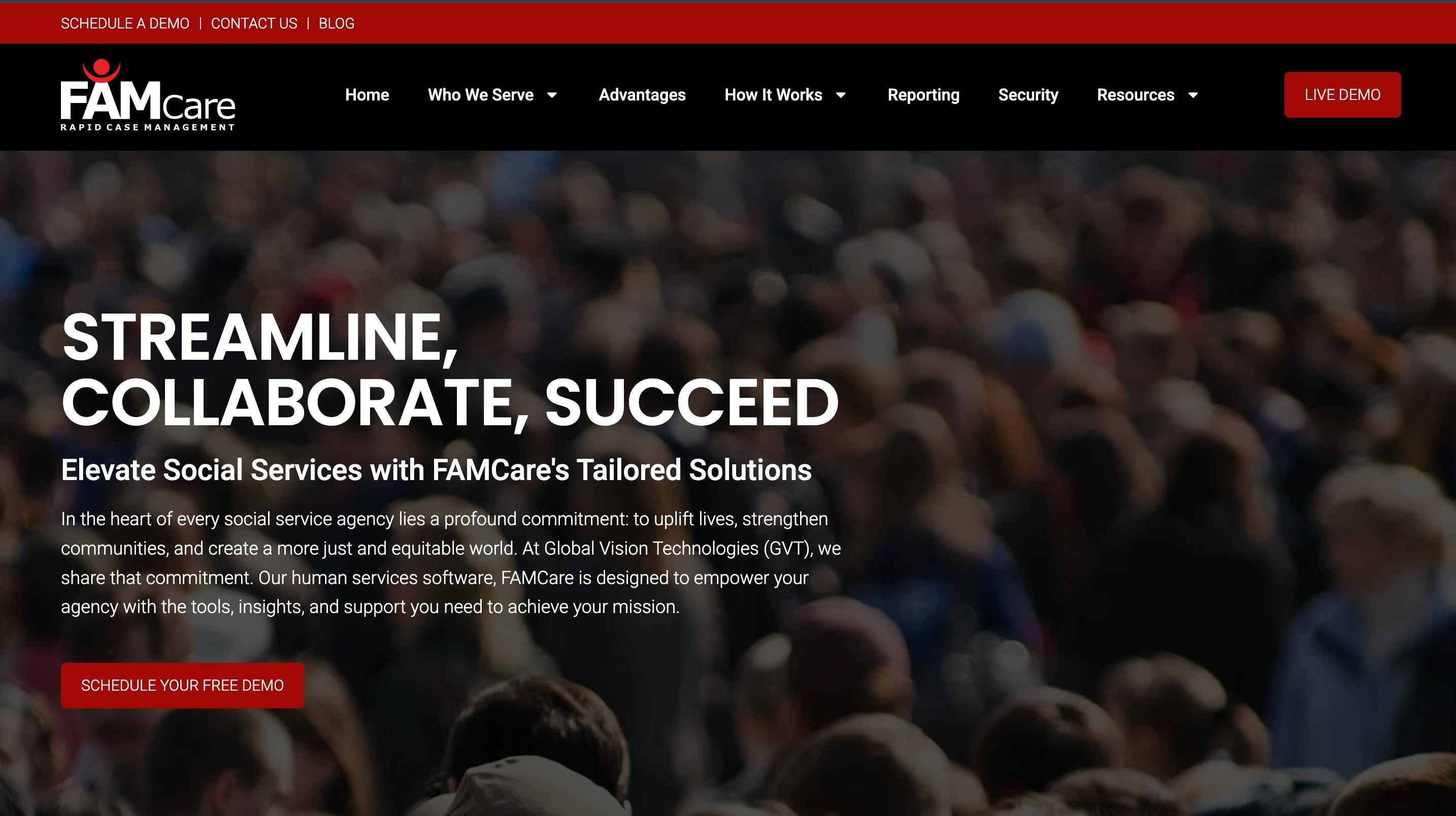
FAMCare is tailored to government agencies managing complex caseloads. Its robust integration features allow seamless coordination across departments and agencies.
Key Features:
- Enterprise-grade integrations: Connects directly with state databases, EHRs, and justice/housing systems.
- Advanced workflow routing: Escalates cases automatically when deadlines are missed or conditions change.
- Cross-department coordination: Shared dashboards enable child welfare, housing, and benefits teams to align.
- Regulatory reporting engine: Prebuilt templates for CJIS, HIPAA, and other government compliance standards.
Pricing: Custom
Best Suited For: Government agencies with large, multi-layered caseloads
3. PlanStreet
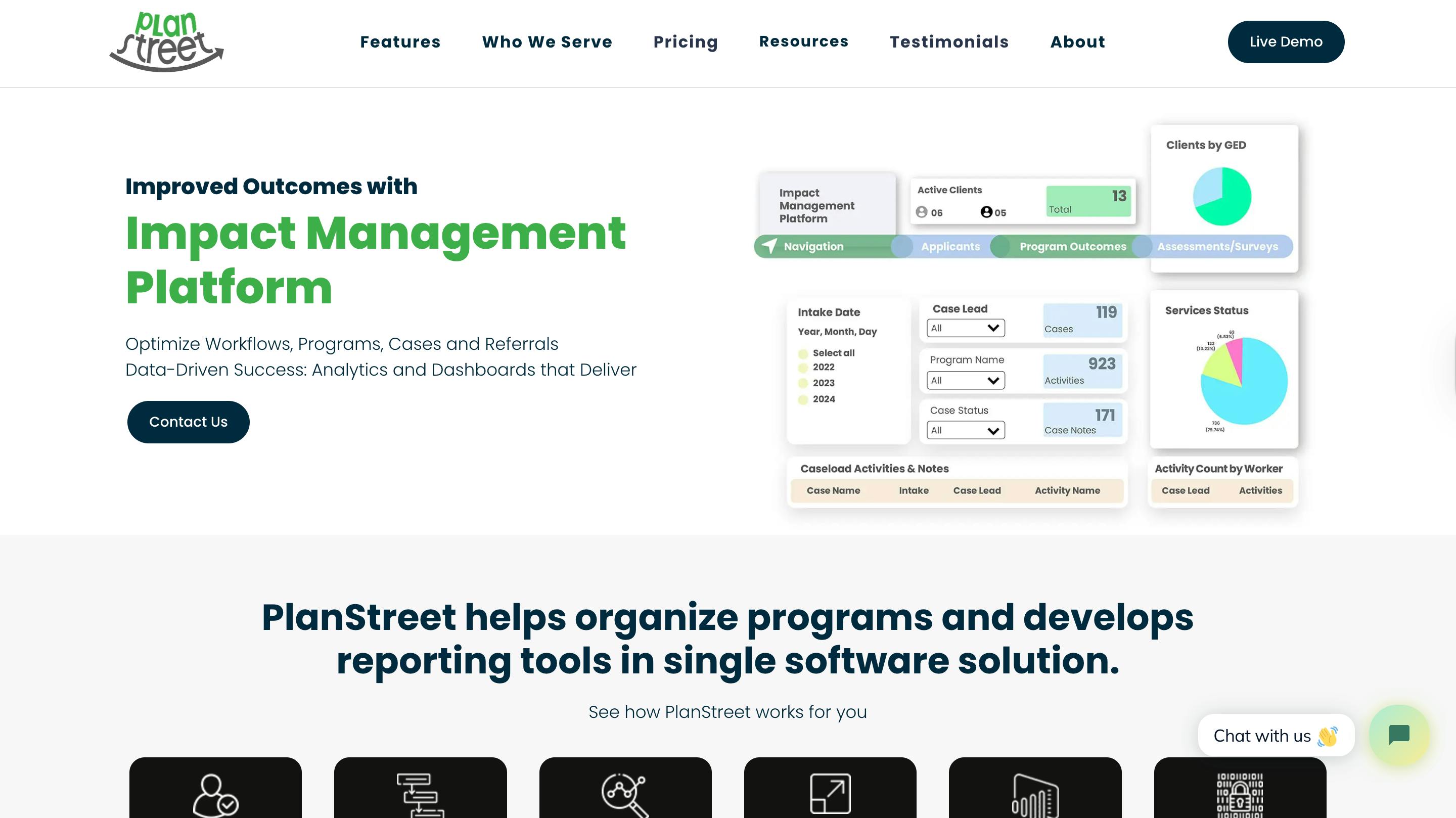
PlanStreet focuses on workflow automation, helping social workers reduce manual tasks. It’s especially strong for HIPAA-compliant communication and client engagement.
Key Features:
- Smart automation: Auto-assign tasks, reminders, and follow-ups based on case updates.
- Real-time collaboration boards: Visual Kanban boards tailored to casework, not just generic project tasks.
- Two-way client messaging: Secure chat and document sharing within the client portal.
- Mobile-first design: Optimized for field workers capturing notes and signatures on the go.
Pricing: $39/user/month
Best Suited For: Social service teams seeking automation and client collaboration tools
4. Zanda Health
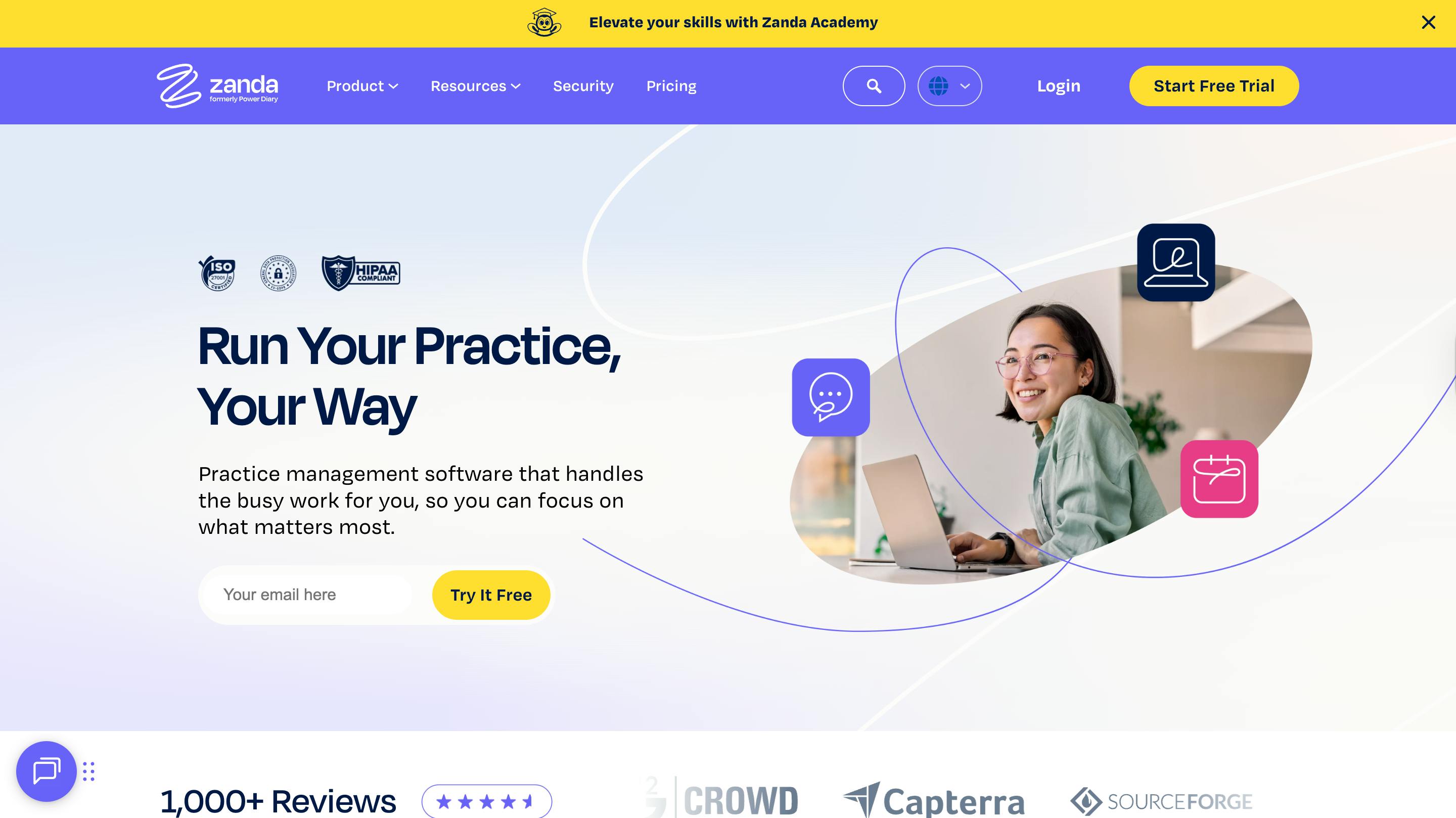
Zanda Health bridges social care and healthcare with strong EHR integration. Its customizable templates make it flexible for different practice settings.
Key Features:
- Deep EHR interoperability: HL7 and FHIR support for seamless data exchange with hospitals and clinics.
- Customizable care pathways: Build structured workflows for mental health, elder care, or chronic disease support.
- Outcome analytics: Predictive insights flag clients at risk of disengagement or poor outcomes.
- Flexible licensing: Scales easily from small practices to regional provider networks.
Pricing: $49/user/month
Best Suited For: Social work practices and integrated health & social care teams
5. Foothold
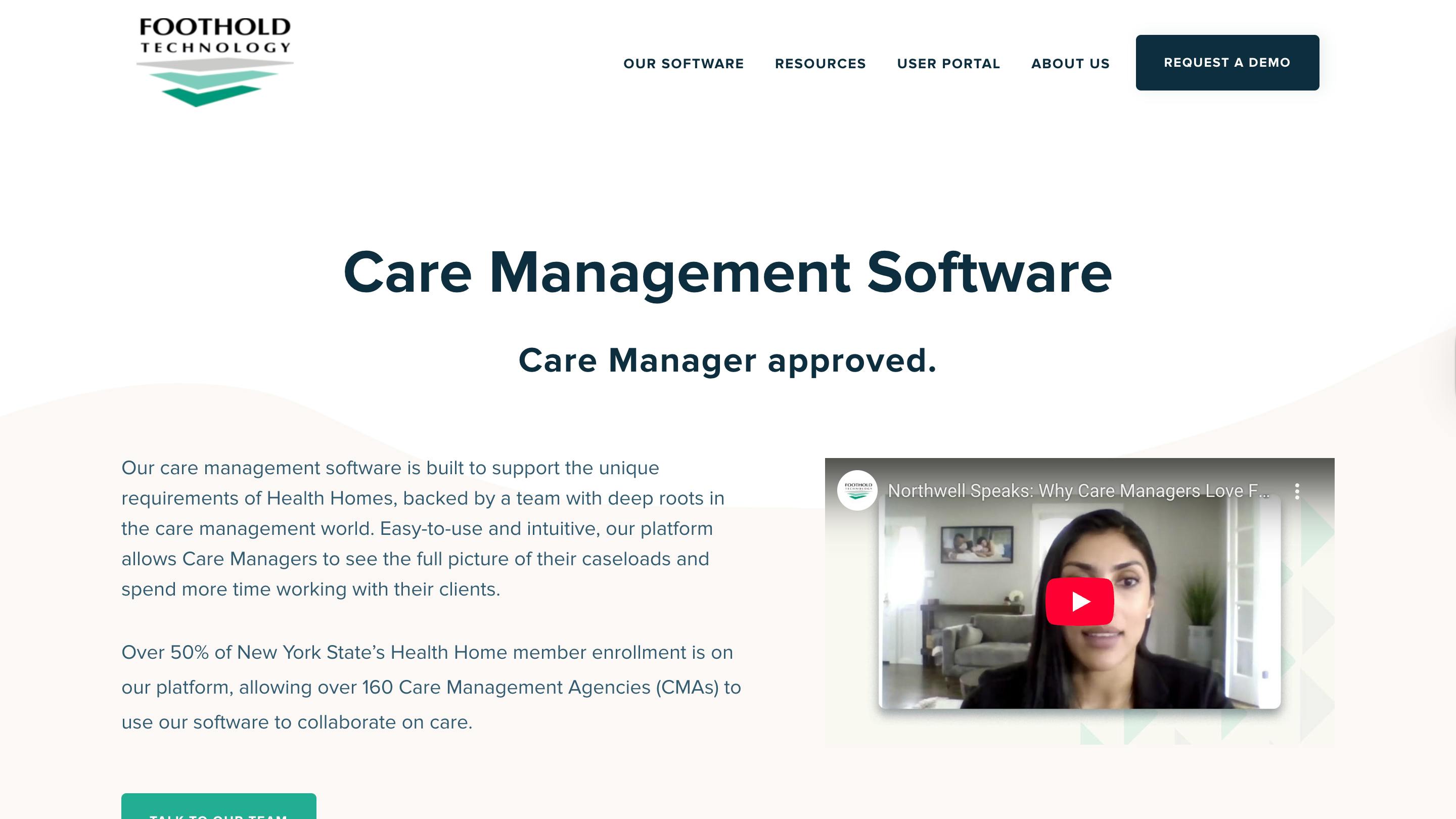
Foothold specializes in behavioral health and is designed to handle medication management alongside care planning. It’s ideal for agencies with clinical and social care overlap.
Key Features:
- Medication adherence tracking: Connect prescriptions, refills, and case notes in one timeline.
- Integrated billing: Medicaid and insurance billing tools designed for behavioral health compliance.
- Clinical note templates: Built for DSM-5 and behavioral assessments alongside social care data.
- Continuum of care support: Coordinates inpatient, outpatient, and community-based services.
Pricing: Custom
Best Suited For: Behavioral health organizations & recovery programs
6. Casebook
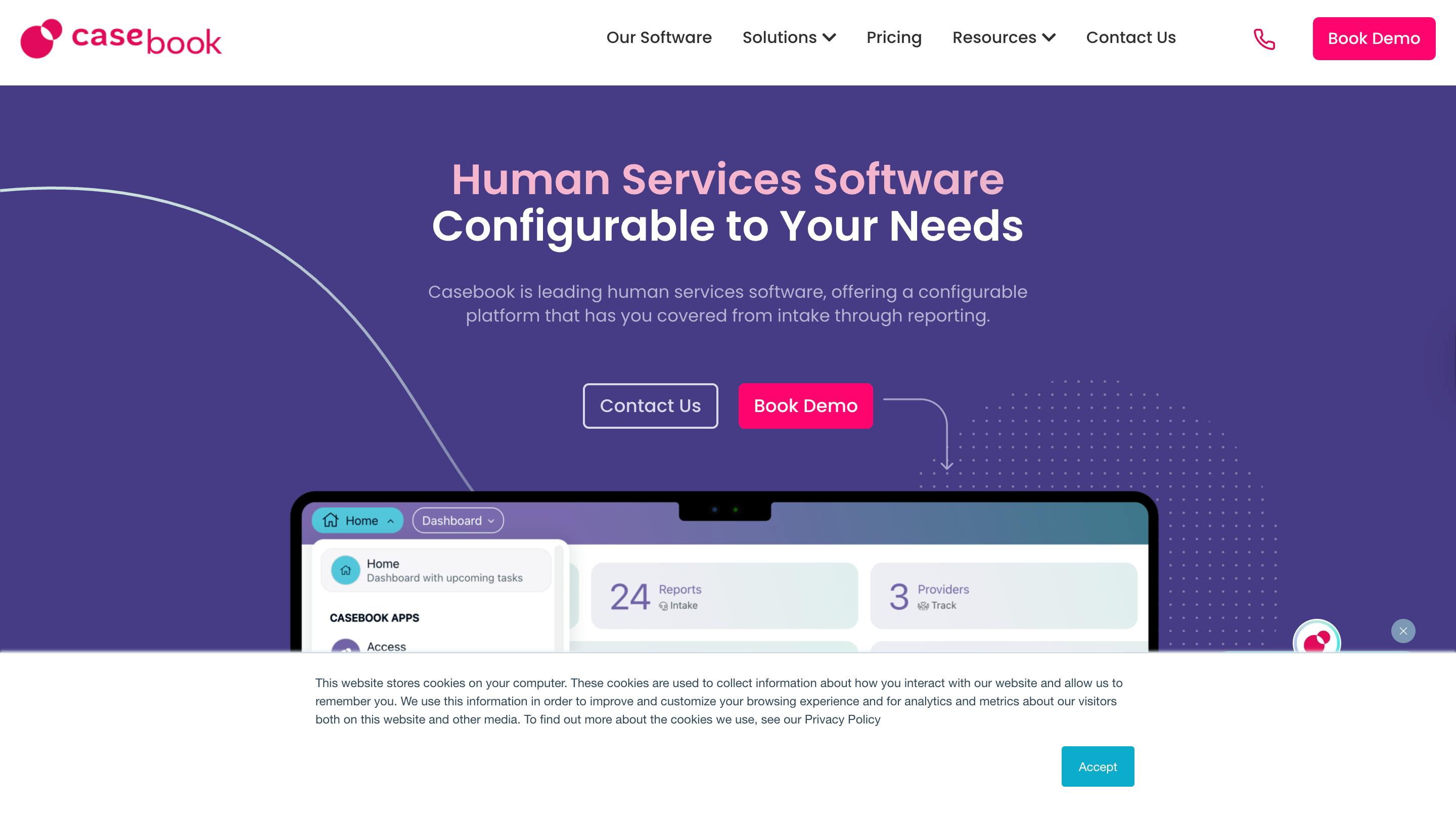
Casebook is purpose-built for child welfare programs, ensuring compliance with legal and regulatory standards while keeping families supported.
Key Features:
- Placement lifecycle tracking: End-to-end visibility into foster care placements, reunifications, and adoptions.
- Digital visitation management: Schedule, log, and monitor family visits with compliance checks.
- Court documentation tools: Auto-generate legal filings and compliance records for hearings.
- Audit-ready records: Built-in data trails meet state and federal oversight requirements.
Pricing: Custom
Best Suited For: Child welfare agencies & family services
7. Athena
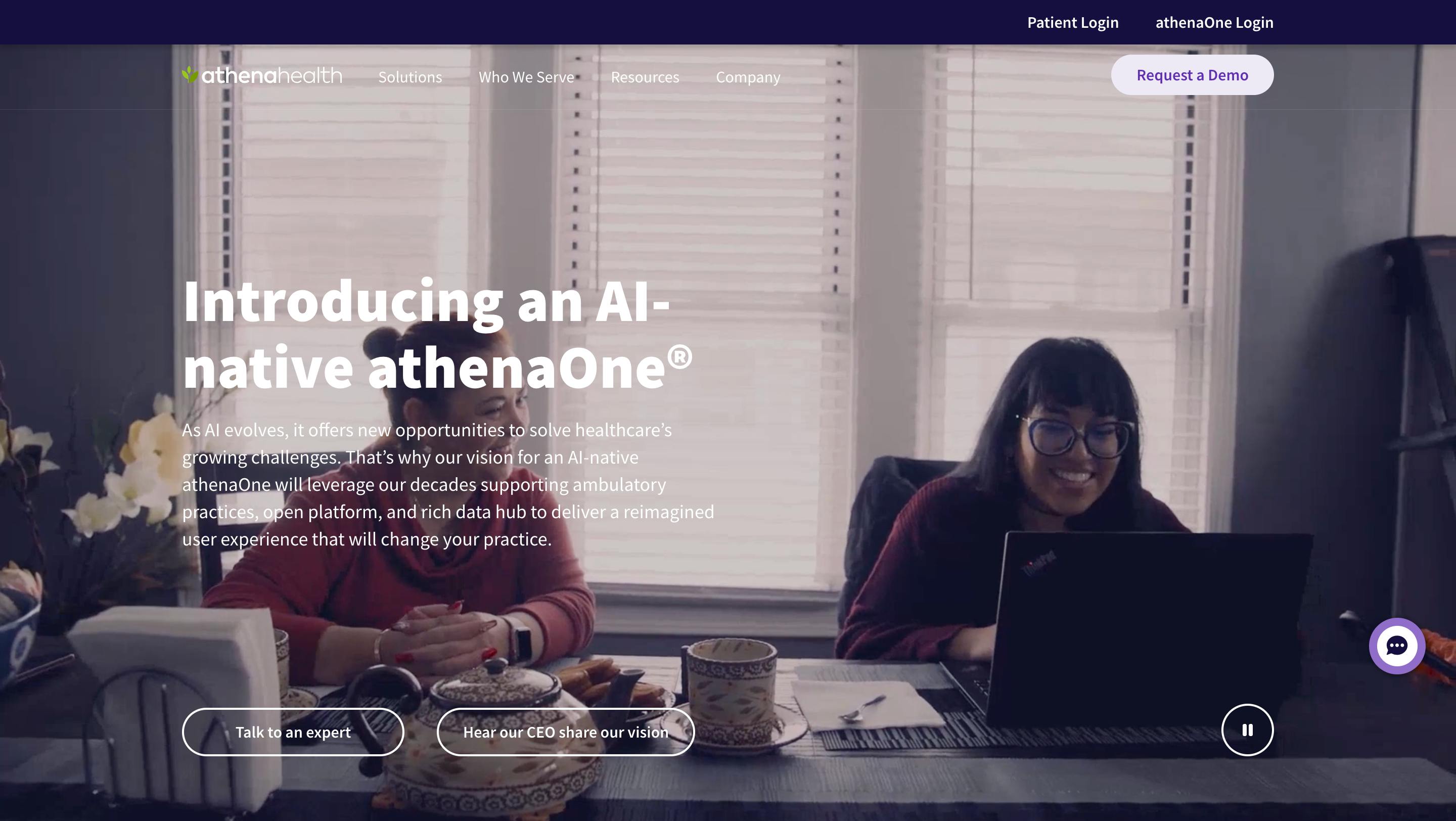
Athena blends healthcare and social care management into one platform. It’s strong for organizations needing both EHR functionality and social work case tools in one system.
Key Features:
- Unified clinical + social profiles: View a patient’s medical record alongside social determinants of health.
- Integrated scheduling + billing: One system for therapy sessions, medical appointments, and community referrals.
- Analytics across domains: Combine clinical and social metrics to evaluate holistic outcomes.
- Care coordination hub: Bridges hospitals, outpatient clinics, and community social service agencies.
Pricing: Custom
Best Suited For: Healthcare systems offering social care services
Comparison Table
Here’s a side-by-side view so you can quickly compare features, pricing, and best-fit use cases before making a decision.
Platform | Best For | Key Features | Starting Price |
|---|---|---|---|
Apricot | Nonprofits | Case tracking, reporting, portals | $45/user/mo |
FAMCare | Government | Caseload mgmt, integrations | Custom |
PlanStreet | Workflow automation | HIPAA-compliant, engagement tools | $39/user/mo |
Zanda Health | Social work practices | EHR integration, customizable templates | $49/user/mo |
Foothold | Behavioral health | Medication mgmt, care planning | Custom |
Casebook | Child welfare | Compliance tools, digital signatures | Custom |
Athena | Healthcare + social care | EHR + social work case tools | Custom |
Implementation: Step-by-Step
Here are the key steps you can follow to implement social care management software effectively in your organization:
- Assess Your Unique Needs
Identify whether you need stronger care planning, client management, or integration capabilities. - Select HIPAA-Compliant Software
Confirm encryption, digital signature capture, and data security measures. - Run a Pilot
Test with a small team and a mix of social work cases. - Train Your Staff
Ensure every case manager understands workflows and management tools. - Track Progress and Optimize
Use built-in tracking outcomes, insights, and reporting to refine processes.
Some Common Mistakes to Avoid
- Choosing software with limited features that can’t handle complex caseloads
- Skipping user-friendly interfaces, which slows adoption
- Ignoring payment processing or integration capabilities
- Underestimating the importance of data migration planning
How Supanote Supports Social Workers
While platforms like Apricot or FAMCare cover end-to-end case management, many social workers also rely on focused documentation tools to ease their workload.
For example, Supanote is designed for therapy documentation but can be used alongside case management software to automate session notes, maintain HIPAA compliance, and reduce administrative effort. These tools don’t replace full management systems, but they can complement them by cutting down time spent on paperwork.
Sign Up to Cut Admin Time in Half
Supanote streamlines case notes & compliance so you focus on care
Try for Free
FAQs
Q: Is social care management software the same as case management software?
A. Yes, case management software is often used interchangeably, though human services software can include additional tools.
Q: Can I use it for mental health and behavioral health programs?
A. Yes, most systems support mental health, behavioral health, and medication management workflows.
Q: Is it HIPAA-compliant?
A. Top platforms are HIPAA-compliant to protect sensitive information.
Q: Can it help with reporting and tracking outcomes?
A. Absolutely, outcome tracking and automated reporting are core features.
Q: What about payment processing?
A. Many platforms include payment processing for certain services.
Q: How does it help social workers?
A. It helps social workers manage tasks, access vital information, and collaborate with other agencies efficiently.
Q: Does it integrate with other tools and systems?
A. Yes, leading platforms offer strong integration capabilities with EHRs, scheduling software, and billing tools, ensuring all client data stays in one system.
Q: Can I access it on mobile devices?
A. Most modern systems are mobile-friendly, allowing case managers to update case notes, review client information, and manage tasks in the field.
Q: How long does it take to implement?
A. Implementation time varies, small teams may be set up in a few weeks, while large agencies with complex caseloads may require a few months to migrate data and train staff.
Q: Can it be customized for unique program needs?
A. Yes, most platforms offer customizable templates, forms, and workflows to meet the unique needs of each organization while ensuring high quality care.
